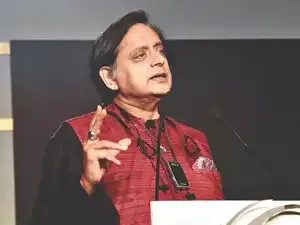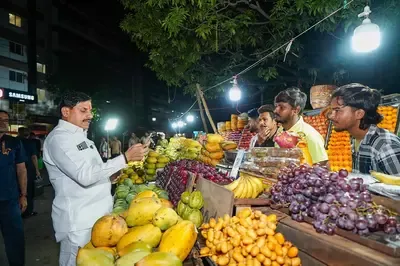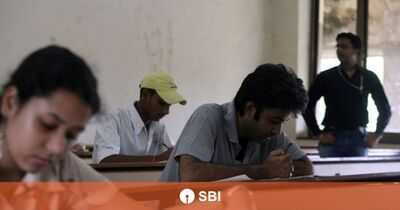Setting off yet another round of buzz, Congress' Shashi Tharoor has penned a critique of the Indira Gandhi-imposed Emergency, with a pierce recollection of Sanjay Gandhi's activities and the authoritarian interregnum's administrative and institutional aftermaths - things that won't be music to the ears of influential sections of the Congress leadership who have tense ties with the Thiruvananthapuram MP. However, equally notably, he added a contemporary perspective by stating that the 1975-77 episode also has lessons for the present.
Tharoor's article in the media came in the backdrop of the Modi government making an event of the Emergency's 50th anniversary and targeting Congress, with the Opposition party trying to counter it with the "undeclared Emergency" taunt.
While the Congress leadership always tried to defend itself by pointing out that it, and even Indira Gandhi, had long since apologised for the Emergency, yet most Congress leaders avoided any recollection of the Emergency experience. That has made Tharoor's venture conspicuous, if not daring.
Dwelling on the excesses, he wrote: "The judiciary buckled under immense pressure to back the move, with the Supreme Court even upholding the suspension of habeas corpus and citizens' fundamental right to liberty. Journalists, activists and Opposition leaders found themselves behind bars. The broad constitutional transgressions enabled a horrifying litany of human rights abuses. Torture in detention and extrajudicial killings -- though less publicised at the time -- were dark realities..."
"The quest for 'discipline' and 'order' often translated into unspeakable cruelty, exemplified by the forced vasectomy campaigns led by Indira Gandhi's son, Sanjay, and concentrated in poorer and rural areas, where coercion and violence were used to meet arbitrary targets. Slum demolitions, carried out with ruthless efficiency in urban centres like New Delhi, rendered thousands homeless, with little to no concern for their welfare," he wrote, lamenting how "these acts were later downplayed as unfortunate excesses".
On Emergency lessons, he said: "Freedom of information and an independent press are of paramount importance... Democracies depend on an independent judiciary able and willing to serve as a bulwark against executive overreach..."
He added: "the third lesson -- perhaps the most pertinent in our current political climate -- is that an overweening executive, backed by a legislative majority, can pose a grave danger to democracy, especially when that executive is convinced of its own infallibility and impatient with the checks and balances that are essential to democratic systems. The Emergency was possible precisely because power was centralised to an unprecedented degree, and dissent was equated with disloyalty."
Tharoor's article in the media came in the backdrop of the Modi government making an event of the Emergency's 50th anniversary and targeting Congress, with the Opposition party trying to counter it with the "undeclared Emergency" taunt.
While the Congress leadership always tried to defend itself by pointing out that it, and even Indira Gandhi, had long since apologised for the Emergency, yet most Congress leaders avoided any recollection of the Emergency experience. That has made Tharoor's venture conspicuous, if not daring.
Dwelling on the excesses, he wrote: "The judiciary buckled under immense pressure to back the move, with the Supreme Court even upholding the suspension of habeas corpus and citizens' fundamental right to liberty. Journalists, activists and Opposition leaders found themselves behind bars. The broad constitutional transgressions enabled a horrifying litany of human rights abuses. Torture in detention and extrajudicial killings -- though less publicised at the time -- were dark realities..."
"The quest for 'discipline' and 'order' often translated into unspeakable cruelty, exemplified by the forced vasectomy campaigns led by Indira Gandhi's son, Sanjay, and concentrated in poorer and rural areas, where coercion and violence were used to meet arbitrary targets. Slum demolitions, carried out with ruthless efficiency in urban centres like New Delhi, rendered thousands homeless, with little to no concern for their welfare," he wrote, lamenting how "these acts were later downplayed as unfortunate excesses".
On Emergency lessons, he said: "Freedom of information and an independent press are of paramount importance... Democracies depend on an independent judiciary able and willing to serve as a bulwark against executive overreach..."
He added: "the third lesson -- perhaps the most pertinent in our current political climate -- is that an overweening executive, backed by a legislative majority, can pose a grave danger to democracy, especially when that executive is convinced of its own infallibility and impatient with the checks and balances that are essential to democratic systems. The Emergency was possible precisely because power was centralised to an unprecedented degree, and dissent was equated with disloyalty."








